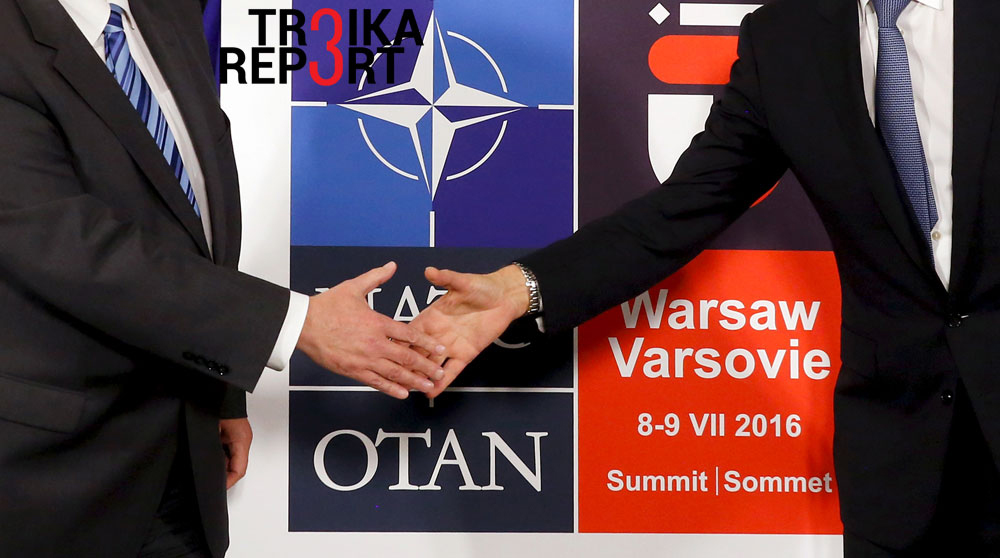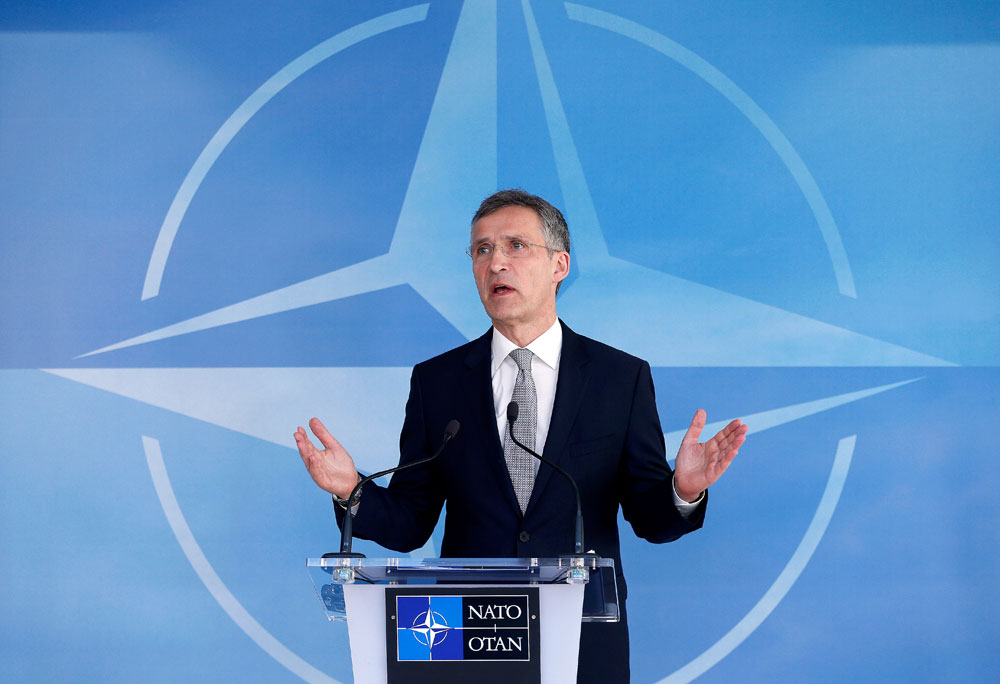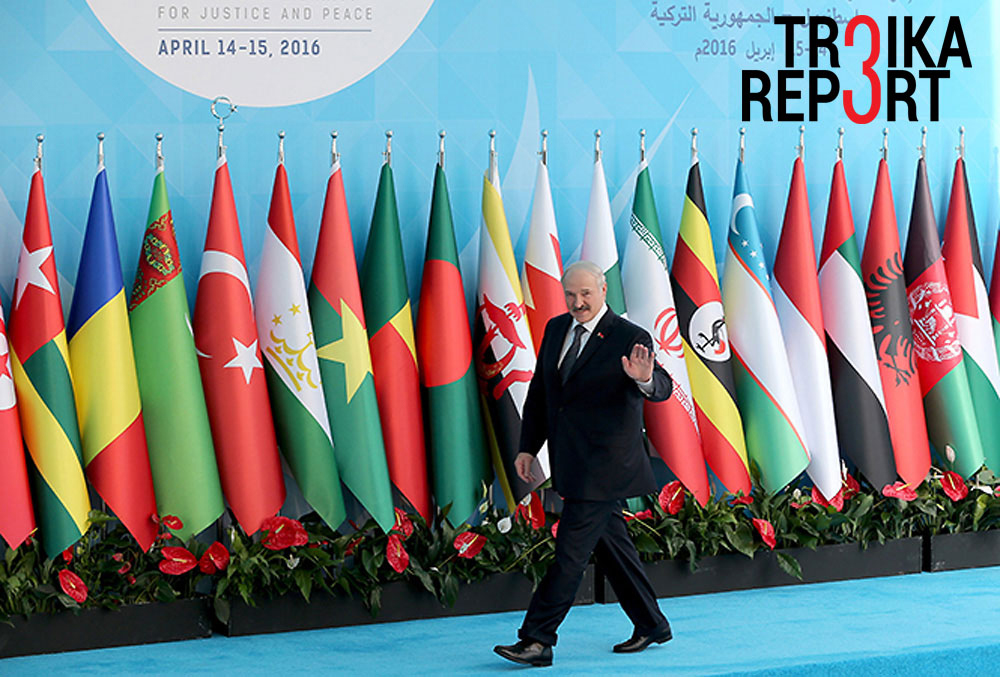Can Russia stomach Ukraine and Georgia becoming NATO ‘associates’?

The upcoming NATO summit will be held in Warsaw on 8-9 July, 2016.
ReutersSymbolic gestures have always been part and parcel of public diplomacy. The hosts of the high-level meeting of NATO top officials in Warsaw scheduled for July 8-9 have allocated for a special function a room in the Presidential Palace where the Warsaw Pact was signed in 1955, six years after the emergence of the North Atlantic Treaty Organization.
This time NATO, having outlived the Moscow-led Warsaw Pact, intends to upgrade the standing of the two post-Soviet republics that currently pursue an unfriendly policy towards Russia. Both will enjoy the privilege of being termed “associate partners.”
Moreover, there will be enhanced cooperation in the Black Sea based on the “28+2” formula, which will be similar to the one applied in the Baltic Sea, where Sweden and Finland link up with NATO naval forces.
Sources in Tbilisi have revealed that the focus on coordination of naval activities in the Black Sea would effectively “isolate” Russia.
As for the long-term motives of the NATO leadership, according to Dr. Vakhtang Maisaia, former counselor at the Mission of Georgia to NATO, they are easy to determine. “These decisions by NATO are perfectly expectable against the heating up of the Cold War with Russia,” he told the Russian business daily Kommersant.
Step by step, albeit at a snail’s pace
The reincarnation of the Cold War seems to be at the back of everybody’s mind. The slow-motion absorption of the last post-Soviet republics not yet in NATO is a non-stop process.
Last September, Jens Stoltenberg, the 13th Secretary General of NATO, elevated the representative office of Ukraine at the alliances headquarters in Brussels to a full-fledged diplomatic mission.
Yet no pledges to welcome Ukraine as NATO member were made. The status quo has been preserved since the NATO summit in Bucharest in April 2008, when it was decided that membership for Georgia and Ukraine cannot be on the agenda for the time being.
Notably, on a visit to Kiev last year, Stoltenberg stressed that the dossier could be reopened once Ukraine has completed its set of reforms. This means that NATO has not ruled out continuing its expansion along the Russian border.
Meanwhile, a new training camp employing NATO counselors and instructors has been functioning in the outskirts of the Georgian capital since the beginning of this year.
In April, events at a “NATO week” in Georgia were highlighted by discussions on how to counter Russian soft power and neutralize its “propaganda.” The idea of a Russian-language broadcasting TV channel was floated, with no details as to who would manage it.
Consolation prize
For Georgia and Ukraine the prospect of becoming NATO “associates” falls short of an earlier promised “roadmap” to a bona fide membership card. “This is sort of a consolation prize prior to the Warsaw summit,” said Vakhtang Maisaia.
This sentiment is shared by Alexander Konovalov, a Moscow-based independent military expert who used to lecture twice a year at the NATO Defense College in Rome. Playing down the half-hearted NATO embrace, Konovalov insisted that Moscow would nevertheless “cry wolf” and accuse the alliance of “encirclement.”
“These are the belated repercussions of the breakdown of the Soviet Union. I know from my own experience. I lectured in Germany in the 90s and met Eastern Europeans: They were dead certain that the new Russia is the old Soviet Union in disguise. They saw no alternative to maintaining their national security but to become NATO member states. It was viewed as the only insurance. Today, Ukraine and Georgia are going along the same route.”
– Do you expect NATO to drastically broaden its scope and enhance the quality of military collaboration with the two littoral countries in the Black Sea basin?
“NATO has not prioritized turning the Black Sea into another theater of potential war. It does not make sense. The area has only one advantage: to strike with sea-launched cruise missiles deep into the European part.”
– You mean the European part of Russia?
“Well, yes. But it is not worthwhile to have a military build-up here because the combined NATO naval forces, including the fleet of Turkey, and not counting Bulgaria and Romania, already far exceed the Russian potential in the Black Sea.”
– Will the new status of “associate” recruits serve as another step forward toward assuming full membership?
“This is hardly the case. In fact, it is a way of delaying this decision.”
Much ado about nothing
Yevgeny Buzhinsky, a retired two-star general and senior vice-president of the Center for Policy Studies in Russia, a Moscow-based independent think tank, echoed to a certain extent Konovalov’s skeptical assessment.
“The vagueness of the ‘associate partnership’ notion reveals that NATO is not ready to offer Ukraine and Georgia full membership. It might boil down to a bureaucratic unit similar to the already existing vehicles of bilateral interaction. For the moment, the base level of such interaction ‘on the ground’ is limited.
“It should be put on the record that the United States brought on board a brigade from Georgia to fight against Saddam Hussein in Iraq back in 2003. Now, the government in Kiev is displaying comparable eagerness to have its troops sent somewhere. The problem is twofold: Firstly, neither the U.S. nor NATO on the whole regard it as expedient, and secondly, Kiev wants to be paid for the services.”
– Is there more substance to the “28+2” military cooperation in the Black Sea?
“We can expect a joint naval exercise by five states: Turkey, Bulgaria, Romania plus Ukraine and Georgia. But this doesn’t amount to any new factor to be taken into account. The agreement on the lease of the Sevastopol naval port with Ukraine was immature, allowing Kiev to prevent the modernization of the Russian fleet, thus creating conditions for it to become obsolete. Today, the upgrade of the Russian navy on the Black Sea is on steady course.”
– So how would you sum up the double news on the “associate partnership” for Ukraine and Georgia, as well as the possible surge of NATO naval activities in the Black Sea?
(The answer was pronounced by the former general in articulate English)
“Much ado about nothing.”
The opinion of the writer may not necessarily reflect the position of RBTH or its staff.
Special section: Troika Report>>>
Subscribe to get the hand picked best stories every week
All rights reserved by Rossiyskaya Gazeta.
Subscribe
to our newsletter!
Get the week's best stories straight to your inbox

